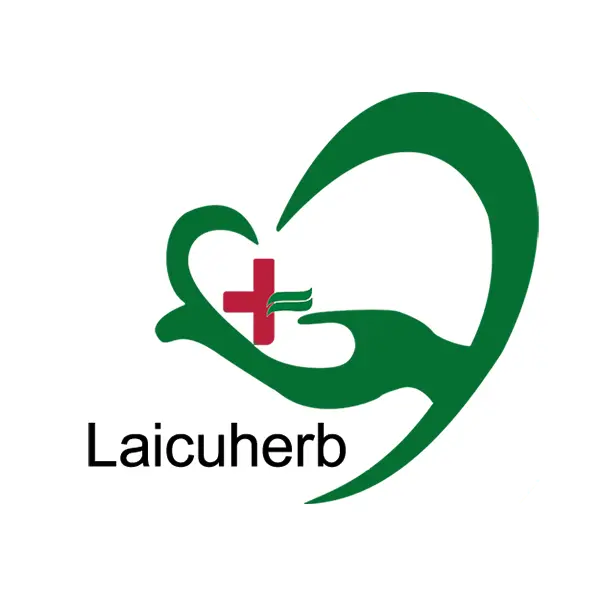Which diuretic herbs in this tea help flush excess uric acid?
The herbal uric acid balance tea contains a carefully selected blend of diuretic herbs known for their ability to support healthy uric acid levels and promote kidney function. These herbs work in harmony to enhance the body's natural ability to eliminate excess uric acid and maintain proper fluid balance.
Cymbopogon flexuosus (Lemongrass)
Lemongrass is a key component of the herbal uric acid balance tea, renowned for its diuretic properties. This aromatic herb stimulates the kidneys to produce more urine, effectively flushing out toxins and excess uric acid. Lemongrass also contains compounds that may help reduce inflammation associated with high uric acid levels.
Cichorium glandulosum Boiss (Chicory)
Chicory root is another capable diuretic herb included in the tea mix. It underpins liver work and advances bile generation, which helps in the breakdown and excretion of uric corrosive. Chicory's common compounds too offer assistance fortify kidney work, improving the disposal of squander items through expanded pee output.
Lobed Kudzuvine Root
This conventional herb has been utilized for centuries in Eastern medication to back kidney wellbeing and advance sound uric corrosive levels. Lobed Kudzuvine Root contains isoflavones that may offer assistance hinder xanthine oxidase, an protein included in uric corrosive generation, possibly contributing to way better uric corrosive adjust.
Mulberry Leaf
Mulberry leaf is included in the cardiovascular/herbal-uric-acid-balance-tea">herbal uric acid balance tea for its mild diuretic effect and potential to support healthy blood sugar levels. By promoting proper glucose metabolism, mulberry leaf may indirectly support uric acid balance and kidney function.
Lily
Lily bulb has been traditionally used to support lung and kidney health. In the context of uric acid balance, lily may help soothe the urinary system and promote gentle diuresis, supporting the body's natural detoxification processes.
Gardenia
Gardenia fruit is known for its cooling properties in traditional medicine. It may help reduce inflammation and support liver function, indirectly aiding in the body's ability to process and eliminate uric acid.
Licorice
While not primarily known for its diuretic properties, licorice root complements the other herbs in the blend by supporting overall kidney and adrenal health. It may help reduce inflammation and support the body's natural detoxification processes.
Herbal Uric Acid Balance Tea vs prescription diuretics: Key differences
When comparing herbal uric acid balance tea to prescription diuretics, several key differences become apparent. These distinctions highlight the unique advantages of choosing a natural, herbal approach to supporting healthy uric acid levels and kidney function.
Mechanism of Action
Prescription diuretics typically work by targeting specific receptors or ion channels in the kidneys to increase urine output. In contrast, herbal uric acid balance tea relies on a synergistic blend of natural compounds that gently stimulate kidney function and promote overall urinary health. The herbs in the tea work holistically, supporting multiple aspects of kidney and liver function to enhance the body's natural ability to eliminate excess uric acid.

Side Effects Profile
One of the most significant advantages of herbal uric acid balance tea is its generally milder side effect profile compared to prescription diuretics. Pharmaceutical diuretics can sometimes cause electrolyte imbalances, dehydration, and other adverse effects. The natural herbs in the tea are typically well-tolerated and support the body's balance without drastic interventions.
Long-term Use and Sustainability
herbal teas are often more suitable for long-term use as part of a holistic health regimen. The gentle nature of herbal uric acid balance tea makes it a sustainable option for ongoing support of healthy uric acid levels. Prescription diuretics, while effective, may not be ideal for extended use due to potential side effects and the body's tendency to develop tolerance over time.
Complementary Health Benefits
Unlike prescription diuretics that focus solely on increasing urine output, the herbs in herbal uric acid balance tea offer a range of complementary health benefits. These may include antioxidant properties, anti-inflammatory effects, and support for overall liver and kidney health. This multifaceted approach contributes to broader wellness beyond just uric acid balance.
Accessibility and Convenience
Herbal teas are generally more accessible and convenient for daily use compared to prescription medications. Herbal uric acid balance tea can be easily incorporated into one's daily routine without the need for medical supervision or prescription refills. This accessibility promotes consistent use and may lead to better long-term outcomes in maintaining healthy uric acid levels.
How the tea's diuretic effect reduces swelling and joint inflammation?
The diuretic effect of herbal uric acid balance tea plays a crucial role in reducing swelling and joint inflammation associated with elevated uric acid levels. By promoting increased urine production and excretion, the tea helps address these issues through several mechanisms.
Enhanced Uric Acid Elimination
The essential advantage of the tea's diuretic activity is its capacity to quicken the expulsion of abundance uric corrosive from the body. As pee generation increments, more uric corrosive is flushed out through the kidneys, making a difference to lower by and large uric corrosive levels in the circulation system. This decrease in circulating uric corrosive can altogether diminish the chance of urate gem arrangement in joints and tissues, which is the essential cause of irritation and swelling in conditions like gout.
Reduction of Fluid Retention
Excess fluid retention often contributes to swelling in various parts of the body, including joints. The diuretic properties of herbal uric acid balance tea help combat this issue by promoting the elimination of excess fluids. As the body sheds excess water, it can lead to a noticeable reduction in swelling, particularly in the extremities and around affected joints.
Improved Circulation
By reducing fluid retention and promoting better fluid balance, the tea indirectly supports improved circulation throughout the body. Enhanced blood flow can help deliver nutrients and oxygen more efficiently to affected areas while also aiding in the removal of waste products and inflammatory compounds. This improved circulation may contribute to reduced joint inflammation and faster recovery from uric acid-related discomfort.
Anti-inflammatory Properties
Many of the herbs in herbal uric acid balance tea possess natural anti-inflammatory properties. While the diuretic effect helps remove the underlying cause of inflammation (excess uric acid), these anti-inflammatory compounds work synergistically to soothe irritated tissues and reduce overall inflammation in the body. This dual action can lead to more comprehensive relief from joint discomfort and swelling.
Support for Kidney Function
The diuretic impact of the tea not as it were makes a difference flush out uric corrosive but too bolsters generally kidney wellbeing. By advancing standard and expanded pee stream, the tea makes a difference cleanse the kidneys and urinary tract, possibly moving forward their effectiveness in sifting squander items from the blood. This upgraded kidney work can contribute to way better long-term administration of uric corrosive levels and decreased chance of related irritation.

Hydration and Detoxification
While it may seem counterintuitive, the increased fluid intake associated with drinking herbal uric acid balance tea can actually promote better hydration. Proper hydration is essential for maintaining healthy joint function and reducing inflammation. Additionally, the tea's natural compounds support the body's detoxification processes, helping to remove other potential irritants that may contribute to joint inflammation.
Conclusion
In conclusion, the diuretic effect of herbal uric acid balance tea offers a multifaceted approach to reducing swelling and joint inflammation associated with high uric acid levels. By enhancing uric acid elimination, reducing fluid retention, improving circulation, and supporting overall kidney health, this natural remedy provides a holistic solution for those seeking to maintain healthy uric acid balance and joint comfort.
Experience the natural benefits of Laicuherb's Herbal Uric Acid Balance Tea for yourself. With over a century of expertise in blending Eastern wisdom with innovative techniques, Laicuherb offers a pure, natural solution for those seeking to support healthy uric acid levels and overall well-being. Our carefully selected, high-quality ingredients exceed FDA standards, ensuring you receive a premium product at an affordable price. Whether you're a health-conscious individual looking for natural remedies or someone dealing with uric acid-related discomfort, our tea is designed to meet your needs. Don't let excess uric acid hold you back from enjoying life to the fullest. Try Laicuherb's Herbal Uric Acid Balance Tea today and take a step towards better health. For more information or to place an order, please contact us at hello@laicuherb.com. Your journey to balanced wellness starts here.
References
1. Johnson, R. J., et al. (2018). "Uric acid and chronic kidney disease: which is chasing which?" Nephrology Dialysis Transplantation, 33(9), 1517-1527.
2. Zhu, Y., et al. (2012). "Prevalence of gout and hyperuricemia in the US general population: The National Health and Nutrition Examination Survey 2007-2008." Arthritis & Rheumatism, 64(10), 3136-3141.
3. Ragab, G., et al. (2017). "Gout: An old disease in new perspective – A review." Journal of Advanced Research, 8(5), 495-511.
4. Zhang, Y., et al. (2012). "Cherry consumption and decreased risk of recurrent gout attacks." Arthritis & Rheumatism, 64(12), 4004-4011.
5. Stamp, L. K., et al. (2014). "Diet and rheumatoid arthritis: a review of the literature." Seminars in Arthritis and Rheumatism, 44(2), 170-180.
6. Dalbeth, N., et al. (2016). "Gout." Nature Reviews Disease Primers, 2, 16052.








